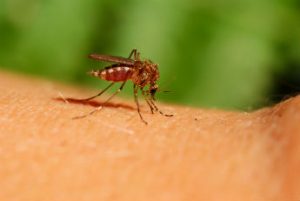Heartworm Disease


Heartworm Disease – What Pet Owners Need to Know
Caused by the parasite ‘Dirofilaria immitis’, heartworm disease is actually a type of roundworm that settles inside the blood vessels in the lungs as well as inside the heart. For your pet, they can pick it up from mosquitos and it attacks the lungs, heart, kidney, liver, central nervous system, and eyes. However, the most serious cases can lead to death which perhaps shows the severity of the condition.
Symptoms
How can you, as the pet owner, spot this condition? Unfortunately, it can be a hard task because the symptoms can be missed but you should be looking out for exercise intolerance, weight loss, loss of appetite, coughing, and a lack of energy. As owners, we need to get our pets immediate attention because leaving it too long could lead to irreversible damage.
Who Can It Impact?
Although more common on the southeast and following the Mississippi River, heartworm can actually be found in all fifty states across the US. In fact, studies from the American Heartworm Society (AHS) actually show that the issue is becoming more common. Nowadays, the majority of people know about the effect it has on dogs but not as many are aware that it impacts cats too.
Many years ago, it was widely believed that cats were immune to the disease but only recently has science allowed us to learn otherwise. Just like dogs, cats can be bitten by a mosquito to become infected and this is true for many other animals too. If you’re unsure of whether your pet is at risk or not, be sure to contact your veterinarian.
Diagnosis
Today, a blood test is the easiest way to pick up the presence of the disease and these can be done quickly and efficiently by the professionals. Within minutes, you should receive the results and this will decide whether treatment is required after being coupled with additional laboratory tests, a cardiac ultrasound, and even radiographs. By the end of the diagnosis stage, your vet will know how severe the issue is and what level of treatment will be required.
Treatment
With all treatment of heartworm disease, the goal is to kill all heartworms without indirectly causing harm to the animal. Over the years, treatment options have certainly improved but, like all treatments for pets, they still carry risks. Typically, the process will start with intramuscular injections, time in hospital, and then limited exercise (strict confinement) for a number of weeks. In terms of money, treatment will soon add up and it also takes time. With this in mind, all pet owners should be focusing on prevention rather than the cure.
Prevention
Attack is the best form of defense in many sports and this is true for heartworm disease also. Nowadays, there are some superb medications available and they can be found in many different forms including injectables, oral, and topical. Once this treatment is applied, it will actually keep your pet free from many other parasites too and this prevents spreading. By using these medications, you get the peace of mind that your pet friends are protected from heartworm and many others such as roundworm; with this, they won’t pick it up from their pals at the park or from anywhere they like to explore.
If your pet is about to start preventative medication, we urge you to have them checked over for roundworm first if they’re over the age of six months. If your pet is started on preventatives while infected, this can have some serious ramifications.
If you ever have questions or need more information, contact your vet and have them check over your pet!










